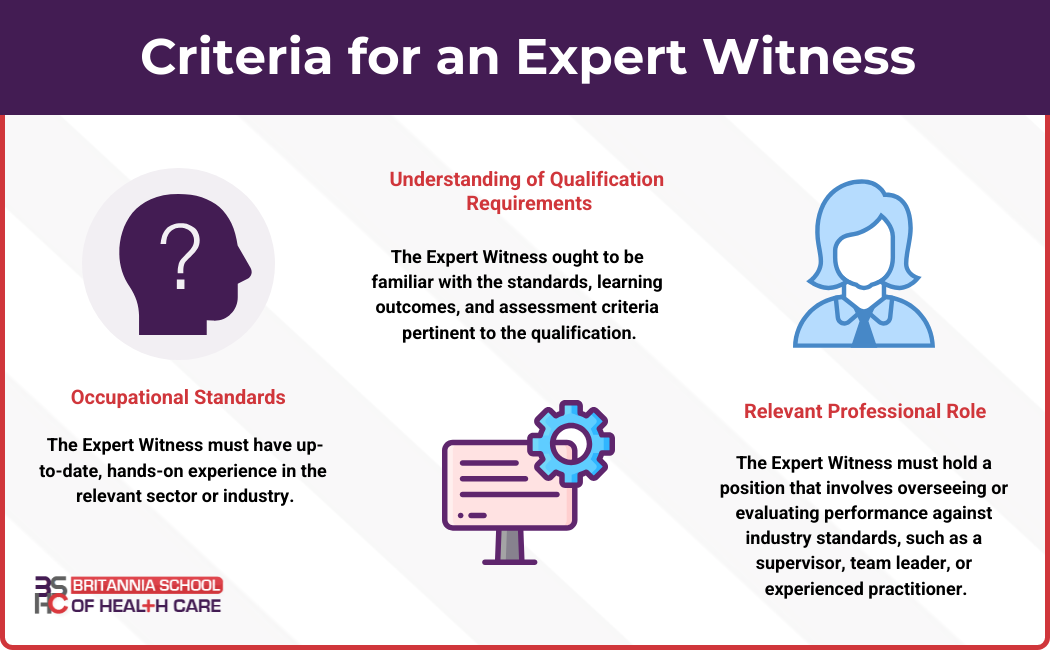In vocational and competency-based qualifications, ensuring that learners are assessed fairly, accurately, and in line with real-world standards is essential. But what happens when assessors are not present to witness every task a learner completes in the workplace? This is where witness statements and expert witness statements come into play. This document provides verified, credible evidence of a learner’s performance and competence in actual work settings, supporting the overall assessment process.
In this blog, we will explore what a witness statement is, the purpose and value of expert witness statements, who is eligible to write them, and how assessors use these statements to validate occupational competence and meet qualification requirements.
What is Witness Statement?
A witness statement is a formal written document used as a piece of evidence in civil or criminal court proceedings. It is typically provided by individuals who have witnessed an incident, including members of the legal justice system such as police officers, legal professionals, or even members of the public. Witness statements play a crucial role in supporting investigations, presenting facts clearly, and aiding the court in reaching a fair judgment.
In vocational and competency based qualification, it serves as a vital piece of supporting evidence, helping to confirm that the learner has met the required standards. This document confirms that learners have effectively performed their job responsibilities and met the vocational qualification standards.
What is the Purpose of Expert Witness Statement?
The purpose of an expert witness statement is to provide credible, work-based evidence of an individual’s competence in their role. An expert witness offers a reliable, first-hand account of the learner’s performance to maintain assessment accuracy and fairness where direct observation by assessors is not feasible in real work environment. Expert witness statements strengthen the assessment process, ensure evidence is valid and authentic, and help meet the qualification’s requirements for real-world competence.
Who can write Witness Statement?
A witness statement can be written by a credible individual with relevant experience in the relevant sector who has overseen a learner’s work in a real-world setting. This individual, often a workplace supervisor, mentor, or experienced colleague, provides an objective account of the learner’s performance, confirming that tasks were carried out competently and in alignment with industry standards. The person writing the witness statement must be able to comment objectively and specifically on the learner’s skills, behaviours, and performance.
What is an Expert Witness?
An Expert Witness is a qualified individual with in-depth knowledge and practical experience in a specific occupational area. Although not the primary assessor, they play a vital role in supporting the assessment process by providing objective, evidence-based feedback.
Who can be an Expert Witness?
An expert witness is a person with specialised knowledge, skill, training, or experience in a particular field, who is called upon to provide independent, professional opinions in legal proceedings.
What is the criteria to be an Expert Witness?
To be recognised as an Expert Witness in vocational and competency-based assessments, an individual must meet specific criteria that demonstrate credibility, sector expertise, and the ability to contribute valid, work-based evidence. A credible Expert Witness enhances the validity and reliability of the assessment process, contributing valuable insights based on real-world experience and sector-specific knowledge.

How Assessors use Expert Witness Statement?
Assessors use expert witness statements to verify real-world competence, triangulating this evidence with their own observations, learner reflections, and work products. By incorporating expert insights, they can make accurate assessment decisions without needing to be present for every task or situation.
Final Thoughts: Expert Witness Statement
Expert Witness Statements play a crucial role in assessing real-life competence. They offer reliable, first-hand accounts of a worker’s skills, behaviours, and professional standards observed in everyday practice.

